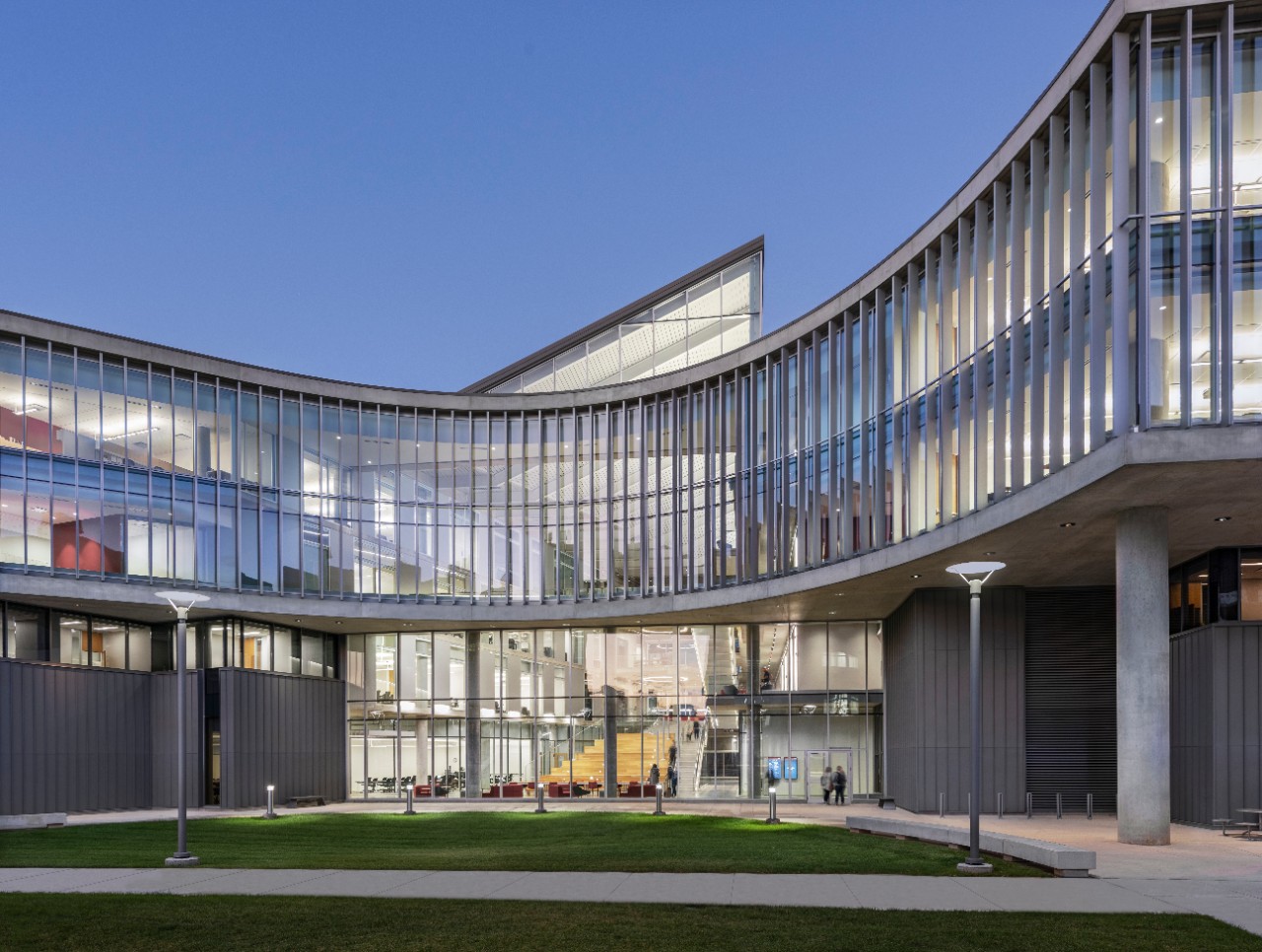
Audiology professor advocates for community members’ hearing health
Dr. Brian Earl teams up with community partners to advocate for the relocation of gun range.
October marks National Audiology Awareness month, but for Brian Earl, PhD, the study of hearing and hearing loss is a specialty he’s passionate about all year long. As a clinically trained professional equipped with a PhD in audiology, Earl is teaming up with community partners to advocate for the relocation of a gun range bordering the Village of Lincoln Heights, which negatively impacts local residents’ hearing and overall health.
“It’s a pleasure to get to know the community members,” says Earl. “It’s about the science, but it’s also about the friendships and really connecting with the community. Our audiology students have seen a public health need firsthand. They learn about noise exposure and know it’s a significant concern, but they were able to hear about their community needing a joint response from professionals and friends of the community.”

Dr. Brian Earl and Daronce Daniels at the Lincoln Heights Hearing Health Fair organized together in February 2020.
A researcher and associate professor of audiology at the UC College of Allied Health Sciences (CAHS) with a secondary appointment in the Department of Otolaryngology-Head and Neck Surgery at the UC College of Medicine. Earl became aware of the gun range after Senator Sherrod Brown’s office reached out to learn more about the public health impacts of noise exposure. Earl then learned firsthand about community members’ concerns regarding the gun range during a meeting that Lincoln Heights Council member Daronce Daniels invited him to in January. He has since formed close relationships with Daniels, and other community partners like Rene Mahaffey Harris, president and CEO of The Health Gap, and Carlton Collins, former program director of Lincoln Heights Outreach, as well as community members who live near the gun range.
Relocating the gun range, which currently serves as a training location for Cincinnati Police Department officers, has been a priority for Daniels, Mahaffey Harris and Collins for years, but the range’s recent increase in the frequency of shooting and usage of higher-caliber guns, which create louder noise, has rekindled the group’s advocacy efforts.
“Noise at a certain level for too long will impact hearing, but it does so over months and years,” Earl says. Studies show that long-term exposure to freeway and airport noise can lead to noise-induced hearing loss, chronic stress, hypertension and cardiovascular disease, and cognitive awareness difficulties, specifically with children, according to Earl. He also notes that noise starts to become dangerous at 85 decibels. Close gunfire measures between 140 and 165 decibels, and due to the traumatic nature of gunfire, the noise from the range also impacts residents’ mental health.
On October 6, Earl gave a moving presentation about the range’s negative health impacts at a special meeting for Cincinnati city council’s Education, Innovation and Growth Committee. In addition to highlighting scientific literature, he recalled a personal experience that “really hit his heart” when he toured Lincoln Heights with Carlton and heard the gunfire firsthand.
“My eyes widened and my ears started to flutter. We have what’s called an acoustic reflex that starts to trigger when our bodies are telling us it’s too much. Between me and the range were a housing development and a playground,” Earl said as he began to choke up, noting that the father in him was starting to show. “It’s too close. At the same time, a toddler came by with her mother and Carlton pointed out that she was not alerting to the sounds that we were alerting to, not finding it strange to have such loud noises in the background. So it was too much for the houses to be that close and too much for her to be that close.”
A father of five, Earl’s compassion during the meeting was palpable. He also discussed how challenging it is for children in the Lincoln Heights community to learn virtually from home amid the gunfire, and he even donated earplugs to aid in the children’s learning. But earplugs don’t provide a permanent fix, nor do they reverse the potential auditory damage that’s already been done, which is why Earl remains determined to help find a permanent solution, including connecting the affected community members to resources and care that will help them heal after the gun range has been relocated.
“When the children become accustomed again to silence and the joys of family laughter and family conversation at the dinner table, together we will have made a difference,” Earl said in his closing remarks at the city council meeting. “I would like the best for the community and the children in that community, so I will be happy to serve in any way as a scientist, a friend and a father.”
Related Stories
Cancer Center, Dana-Farber, more receive $1.2M from family...
March 28, 2025
The Cincinnati Business Courier highlighted a $1.2 million grant received by the University of Cincinnati Cancer Center's Timothy Phoenix and colleagues at Dana-Farber Cancer Institute and the German Cancer Research Center to study pediatric low-grade gliomas.
Kentucky mom shares her colon cancer journey to save others
March 26, 2025
University of Cincinnati Cancer Center patient Patty Goering and physician researcher Tahir Latif spoke with WLWT about Goering's story of being diagnosed and treated for colon cancer at a young age.
President Pinto shares search update for executive vice...
March 25, 2025
President Neville Pinto shares search update for executive vice president for academic affairs and provost